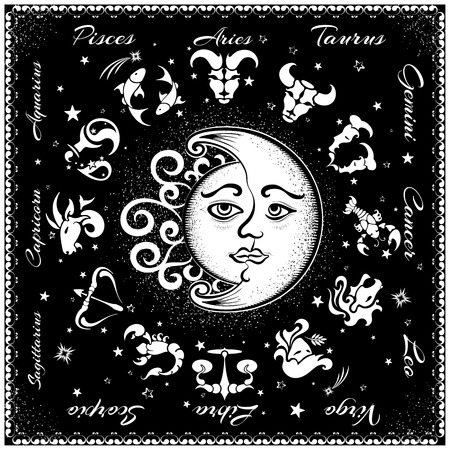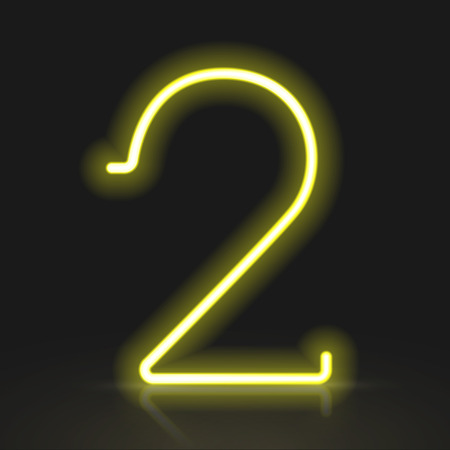Introduction to Moon Signs
Astrology, an ancient system woven into the cultural tapestry of the United Kingdom, offers a rich lexicon for exploring our inner worlds. Within this celestial language, moon signs are often regarded as the hidden architects of our emotional lives. While sun signs have long captured public imagination—frequently referenced in newspaper horoscopes and casual conversation—they reflect only the surface: our outward identity and conscious self. Rising signs, or ascendants, further shape how others perceive us, acting as a social mask. In contrast, the moon sign delves beneath these visible layers, illuminating the subtleties of emotional response, instinctual needs, and subconscious patterns. To understand the true depth of character that astrology proposes, especially in a culture as nuanced as Britain’s, one must turn to the moon sign. It is here that we find clues to our emotional resilience and vulnerabilities, offering insight into how we nurture ourselves and relate to those closest to us. As British society continues to value both tradition and introspection, exploring moon signs provides a relevant framework for understanding not only individual temperament but also the collective emotional undercurrents shaping communities across the UK.
2. Historical and Cultural Roots in the UK
Britain’s relationship with astrology, and particularly lunar symbolism, is woven deeply into its historical tapestry. From the mystical rites of the ancient Celts to the literary musings of Shakespearean England, the moon has acted as both a cosmic calendar and a mirror for human emotion. The British Isles have long been fertile ground for astrological lore, reflecting society’s attempts to understand emotional depth through celestial influences.
Folk Traditions and Lunar Beliefs
Lunar phases were once central to rural British life. Farmers relied on the waxing and waning moon to guide planting and harvesting cycles, while folk healers timed remedies according to lunar positions. The moon’s perceived effect on mood and behaviour was so pronounced that even legal records from medieval England reference ‘lunar lunacy’ as a plausible defence for erratic behaviour during a full moon.
Literature and the Moon’s Emotional Symbolism
The moon features prominently in British literature, serving as a metaphor for longing, madness, or transformation. Shakespeare famously invoked lunar imagery in plays like “A Midsummer Night’s Dream,” where emotional turbulence and lunar cycles intertwine. The Romantic poets—Wordsworth, Shelley, Keats—further elevated the moon as a symbol of introspection and shifting moods, aligning with astrological interpretations of moon signs as indicators of inner life.
Lunar Symbolism Across British History
| Era | Lunar Symbolism | Cultural Impact |
|---|---|---|
| Ancient Britain | Mystical power; goddess worship (e.g., Selene, Cerridwen) | Guided rituals; influenced seasonal festivals like Beltane |
| Medieval Period | Astrological medicine; belief in “moon-madness” | Legal defences; agricultural planning; folk healing practices |
| Early Modern England | Lunar cycles in poetry and drama; emotional allegory | Shaped literary themes; public fascination with astrology |
| Victorian Era to Present | Pseudoscientific interest; psychological symbolism | Popular astrology columns; renewed interest in moon signs for self-understanding |
This enduring fascination with lunar influence highlights how astrology—and specifically moon signs—have provided British culture with a language for exploring emotional landscapes. Today’s continued interest in personalised horoscopes and moon sign readings echoes centuries of looking skyward for meaning, grounding modern emotional inquiry in age-old tradition.

3. The Emotional Landscape of Moon Signs
In the intricate tapestry of British society, emotional expression is often coloured by subtlety and reserve—a trait deeply woven into the national psyche. Within this context, moon signs take on a particularly nuanced role in shaping emotional responses, attachment styles, and patterns of intimacy. Unlike sun signs, which speak to our outward personality, moon signs govern our internal worlds—the realm of feelings, instinctive reactions, and the ways we seek comfort or nurture.
Moon Signs and Emotional Responses
The archetypal British stiff upper lip is not merely a social myth but an adaptive response influenced by centuries of cultural expectation. Yet beneath this composed exterior, moon signs quietly modulate how individuals process and express emotion. For example, a Cancer moon may yearn for deep familial bonds and display a heightened sensitivity to emotional undercurrents, even if outwardly restrained. Conversely, those with an Aquarius moon might favour intellectual detachment, aligning with the British value placed on rational discourse over overt displays of feeling.
Attachment Styles Through a Lunar Lens
Attachment theory has long been a subject of interest in British psychological circles, tracing how early relationships shape adult connections. Here, moon signs offer further granularity: a Taurus moon can foster steady, loyal bonds echoing the British appreciation for dependability and tradition; a Gemini moon might encourage more fluid attachments, resonating with the modern metropolitan penchant for flexibility and wit in relationships. These lunar influences often operate just below conscious awareness, subtly guiding how people navigate closeness and distance within the boundaries set by societal norms.
Patterns of Intimacy and Cultural Expectations
Intimacy in the UK is frequently negotiated through indirectness and understatement—a dance of implication rather than declaration. Moon signs illuminate why some individuals find this comfortable while others experience it as emotionally insufficient. A Leo moon’s desire for demonstrative affection may chafe against understated British courtship rituals, while a Virgo moon’s preference for practical acts of care fits seamlessly with the culture’s quiet gestures of love—think making tea or remembering small details. In essence, understanding the emotional depth conferred by one’s moon sign allows for greater self-awareness and empathy within the uniquely textured landscape of British intimacy.
4. Moon Signs in British Daily Life
In the subtle weave of British daily existence, the influence of the moon—particularly as articulated through lunar signs—manifests in myriad ways both overt and understated. Unlike the fiery declarations of solar astrology, the moon’s sway is intimate, often slipping quietly into the fabric of everyday interactions and cultural phenomena. Britons, known for their understated emotional expression and nuanced social rituals, may find the moon sign’s effect threading through everything from minor behavioural cues to broader public sentiments.
Subtle Behavioural Cues
British society prizes composure, yet beneath this surface, lunar influences can be observed in emotional undercurrents. For instance, a Cancer moon may appear in a penchant for comfort foods on gloomy days or a Taurus moon in an appreciation for tactile pleasures like a well-brewed cup of tea. These details, while small, accumulate to shape the emotional weather of daily life.
| Lunar Sign | Typical Emotional Expression | Everyday Manifestation (UK) |
|---|---|---|
| Cancer | Nostalgic, caring | Baking traditional puddings; reminiscing over family photos |
| Gemini | Restless, communicative | Lively pub debates; quick wit in workplace banter |
| Pisces | Empathetic, dreamy | Escaping with a novel on the train; supporting local charities quietly |
| Taurus | Steady, sensual | Savouring cream teas; tending to garden allotments with devotion |
The Collective Phenomenon: Full Moon Lore
No examination of lunar influence in Britain is complete without addressing the full moon’s reputation. From ancient folklore to modern headlines, there persists a widespread belief that the full moon stirs emotions and even incites eccentric behaviour—a notion echoed by police reports noting increased activity during these lunar phases. This collective consciousness weaves together myth and modernity, demonstrating how lunar cycles remain embedded in public imagination.
The Full Moon and Public Mood: A Closer Look
| Full Moon Event | Traditional Belief (UK) | Modern Observation |
|---|---|---|
| Harvest Moon Gatherings | Auspicious time for community and abundance rituals | Village festivals and seasonal markets thrive under its glow |
| Lunar Madness (“Lunacy”) | Belief in heightened odd behaviour or restlessness | Anecdotal spikes in A&E admissions and quirky news stories |
| Midsummer Full Moon Walks | Seen as magical for lovers and poets alike | Organised group walks across historic landscapes at night |
Conclusion: The Quiet Power of Lunar Influence in Britain’s Everyday Tapestry
The moon sign’s emotional resonance is not always broadcast but is lived—through gestures, traditions, and shared beliefs. In Britain’s daily life, where reserve meets ritual, lunar influence offers a silent yet profound undercurrent shaping individual mood and collective experience alike.
5. The Modern British Perspective
In contemporary Britain, the fascination with moon signs has evolved beyond the esoteric fringes and found a distinctive place within mainstream culture. This resurgence is intricately woven into the fabric of media trends and popular culture, reflecting a society in search of personal meaning amidst rapid social change. British magazines and digital platforms frequently feature horoscopes that emphasise lunar influence, while television personalities and influencers openly discuss their moon sign experiences, making astrological discourse accessible to a broad audience.
The Role of Media and Popular Culture
British media plays a pivotal role in popularising astrology. Programmes on channels such as the BBC occasionally explore celestial themes, while podcasts and YouTube creators dissect moon sign compatibility with quintessentially British humour and wit. This integration speaks to a wider appetite for self-reflection through traditional frameworks, reimagined for a modern audience. Celebrity endorsements and trending social media hashtags further embed moon sign analysis into everyday conversations, from coffee shops in London to student unions in Edinburgh.
Moon Signs as Tools for Personal Identity
For many Britons, understanding their moon sign has become an act of self-discovery and empowerment. In a society that values both individualism and community belonging, moon signs offer a vocabulary to articulate emotional needs and relational dynamics. Unlike the often superficial engagement with sun signs, there is growing interest in using moon sign insights for mental wellbeing—echoed in British wellness movements promoting mindfulness, emotional literacy, and holistic health.
A Distinctively British Approach
Britain’s approach to astrology retains its characteristic pragmatism and dry humour; scepticism persists, but so does curiosity. Moon sign discussions are rarely dogmatic—instead, they are approached with intellectual openness and a nod to tradition. The result is a unique blend: ancient astrological wisdom filtered through the lens of British sensibility, lending new relevance to lunar symbolism in shaping emotional landscapes and personal narratives across the UK.
6. Conclusion: Integrating Lunar Wisdom
Reflecting on the emotional depth that moon signs offer, it becomes clear that this ancient astrological wisdom finds renewed relevance in the contemporary British landscape. Understanding our lunar sign is not merely an exercise in self-indulgence; rather, it is a journey towards greater emotional intelligence—a quality esteemed both in classic British literature and within modern urban communities. By integrating lunar insights with a typically British sense of reserve and understatement, individuals are empowered to comprehend their own feelings more fully while navigating the intricate tapestry of social expectations unique to the UK.
Moon signs invite us to look inward, to consider the subtle tides of emotion beneath our famously stoic exteriors. This reflection resonates profoundly with Britain’s longstanding traditions of introspection and self-discipline, as seen in historical figures from Jane Austen’s heroines to the contemplative poets of the Lake District. At the same time, today’s fast-paced society demands adaptability and resilience—qualities that flourish when we better understand our inner worlds.
By balancing tradition with modernity, Britons can utilise lunar wisdom to foster empathy, support mental well-being, and build more authentic connections. In workplaces, friendships, or family gatherings over a cup of tea, recognising the impact of moon signs encourages a richer dialogue about emotions—one that honours both heritage and progress. Thus, embracing lunar knowledge does not mean abandoning rational thought or scepticism; instead, it offers a nuanced lens through which to appreciate the complexities of human feeling in a way that feels distinctly British.

